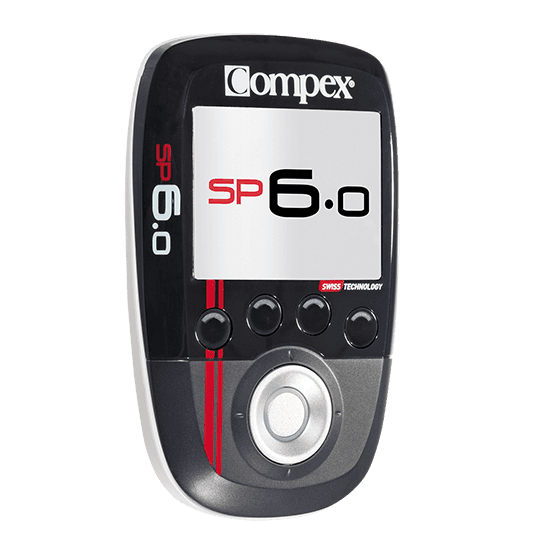COMPEX SP 6.0


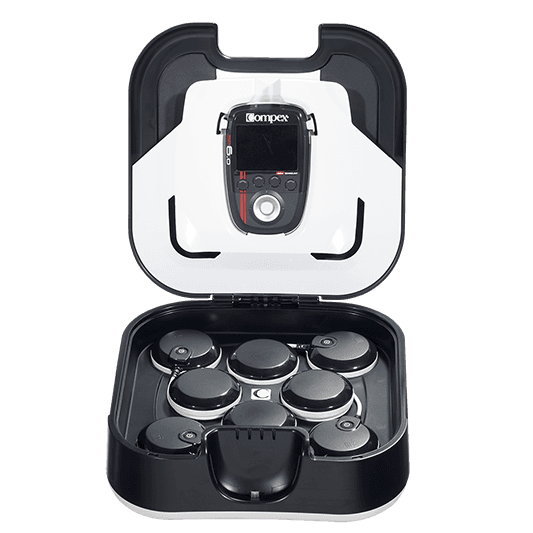
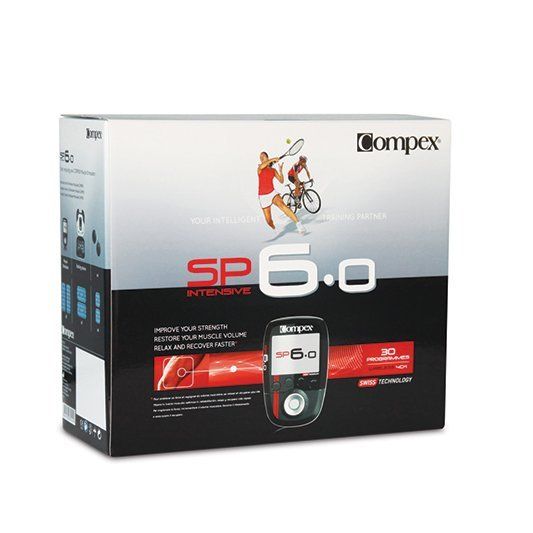
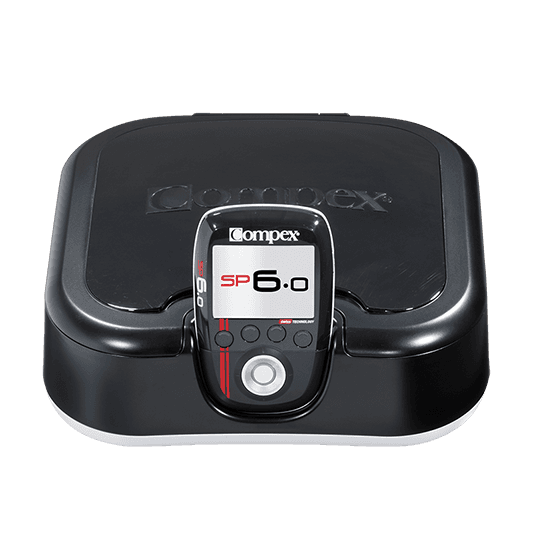
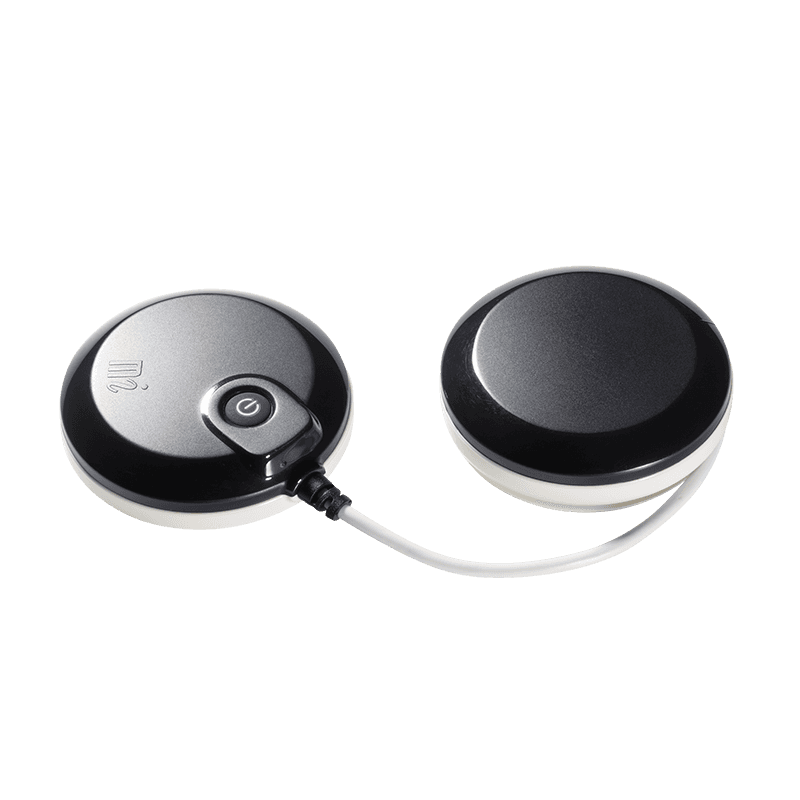
Body Positioning During Stimulation
This position varies according to the muscle group that you wish to stimulate and the program that you are using.
For programmes inducing powerful muscular contractions (tetanic contractions), it is recommended to stimulate the muscle isometrically. You should therefore hold the extremities of limbs being stimulated. This position opposes maximum resistance to movement and avoids any shortening of the muscle during contraction, which would risk causing cramps. For example, when stimulating the quadriceps, you should be in a sitting position with ankles held to avoid extending the knees.
For the other types of programmes which do not induce powerful muscular contractions but only muscular twitches or tingling, position yourself as shown on the illustration, maintaining a comfortable position.
Adjusting Stimulation Intensity
On a stimulated muscle, the number of fibres used depends on the stimulation intensity.
For programmes inducing powerful muscular contractions (tetanic contractions), you must use the maximum stimulation intensities (up to 999) while remaining within your tolerance threshold, in order to
use the maximum number of fibres. The progress of a muscle will be greater the higher number of fibres that are worked. During a session it is therefore important to try to increase the intensity every 3 to 5 contractions.
For other types of programmes like recovery, massage, capillarisation or even muscle pain which only induce muscle twitches, you should gradually increase the stimulation intensities until clearly visible muscle twitches are obtained.
For TENS, Epicondylitis and Tendinitis programmes, you should gradually increase the intensities until you feel a tingling sensation under the electrodes.
Scheduling of Stimulation Sessions.
The question of the scheduling of the stimulation sessions during the week only arises in situations where at least two training sessions are to be done in the same week.
In cases where up to six sessions a week are planned, it is recommended that the sessions be scheduled as far apart as possible. For example, anyone who does three sessions a week should do them at the rate of one session every two days (2x1 rest day and 1x2 days of rest/week). Anyone who does six sessions should do six consecutive days of stimulation with one day of rest.
Above seven sessions a week, it is advisable to group several sessions together on the same day to leave yourself one or two complete rest days without stimulation. Anyone who does seven sessions a week should do five days of stimulation, at the rate of one session per day with one two-session day(s) (with at least a half-hour's rest between the sessions), leaving one rest day. Anyone who does ten sessions a week should preferably do five two-session days (again with at least a half-hour's rest between the sessions), leaving two rest days.
Alternating the stimulation sessions
The stimulation sessions can be done outside of or during voluntary training.
When voluntary training and stimulation are done during the same session, it is generally recommended that the voluntary training be done first followed by the stimulation. This means that the voluntary training is not done on muscle fibres which are already tired. This is particularly important for strength and explosive strength training.
However, in resistance training, it can be very useful to proceed in the reverse order. Before the voluntary training, by means of stimulation for resistance, a “specific pre-fatigue session” is carried out on the muscle fibres without general and cardio-vascular fatigue. In this way, the voluntary effort on the “prepared” fibres will push the glycolytic metabolism faster and further.
Progressions of Stimulation Cycles
The stimulation cycles are for people who are already accustomed to electrostimulation and want to perform several training cycles.
The cycle logic refers to the workload performed by electrostimulation. Just like a normal workout, one has to to start with an amount of effort then increase it over the course of the cycles. Thus, it is recommended starting with the 1st cycle and going on to the next level when the cycle is finished, normally after 4 to 6 weeks of stimulation based on 3 sessions per week.
It is also important to have reached significant stimulation intensities in sessions before going on to another cycle. At the end of a cycle you can either start a new cycle or do maintenance training based on one session per week.
Title text
You can also customize the color, font and size of the text by highlighting it and choose between the different options. This works for both the title and paragraph.
Nanaimo, BC, V9T 1B4
1-855-500-2610

